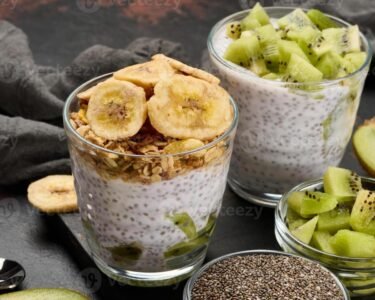As temperatures rise and summer sets in, many of us find ourselves making changes to our daily habits, including what we eat and drink. The gut, often called the “second brain,” plays a critical role in overall health. It affects everything from digestion and immunity to mood and energy levels. However, summer’s heat and lifestyle changes can sometimes throw your digestive system off balance. To keep your gut functioning well and to feel your best all season long, here are five essential tips to maintain gut health during the summer months.
1. Stay Well-Hydrated
One of the most vital yet often overlooked ways to support gut health in summer is proper hydration. In the heat, our bodies lose more fluids through sweating, which can lead to dehydration if not properly replenished. When the body lacks sufficient water, digestion slows down, often resulting in constipation, bloating, and discomfort.
Water helps in the breakdown of food, absorption of nutrients, and smooth movement of waste through the intestines. For optimal gut health, aim to drink at least 8–10 glasses of water a day, or more if you’re spending time outdoors or exercising. Coconut water, infused waters with lemon or cucumber, and herbal teas like peppermint or chamomile can also help keep you hydrated while providing additional digestive benefits.
2. Eat Fresh, Seasonal Produce
Summer is a great time to take advantage of fresh fruits and vegetables, which are rich in fiber, water, and essential nutrients. Fiber plays a crucial role in digestive health by feeding the good bacteria in your gut and keeping your bowel movements regular.
Fruits like watermelon, berries, mangoes, and papayas are not only hydrating but also packed with fiber and antioxidants. Vegetables such as cucumbers, bell peppers, zucchini, and leafy greens are light, easy to digest, and help cool the body. These foods also support the gut lining and reduce inflammation, which is key to maintaining a healthy digestive tract.
When possible, opt for locally grown and organic produce to ensure you’re getting the freshest and most nutrient-dense foods.
3. Incorporate Probiotic-Rich Foods
Your gut is home to trillions of bacteria, both good and bad. When the balance tips in favor of harmful bacteria, you might experience issues like bloating, indigestion, or weakened immunity. Probiotics are beneficial bacteria that help restore this balance and keep your gut microbiome healthy.
Summer is an ideal time to add probiotic-rich foods to your diet. Yogurt, kefir, fermented pickles, sauerkraut, miso, and kimchi are excellent sources. These not only improve digestion but also enhance nutrient absorption and support a strong immune system.
For best results, pair probiotics with prebiotic foods like garlic, onions, bananas, and oats, which feed the beneficial bacteria and help them thrive.
4. Avoid Excess Sugar and Processed Foods
It’s common in summer to reach for sugary beverages, ice cream, or fast food, especially during holidays and outings. While these might offer temporary satisfaction, they can negatively impact your gut health. Excess sugar and processed foods disrupt the balance of gut bacteria, often leading to digestive issues, fatigue, and even skin problems.
Instead, choose healthier summer treats like fresh fruit, frozen yogurt, or homemade smoothies. You can also prepare light, wholesome meals using whole grains, lean proteins, and vegetables. These choices are not only easier on your stomach but also help stabilize your blood sugar and energy levels throughout the day.
5. Eat Light and Practice Mindful Eating
Summer heat naturally reduces appetite, and it’s important to listen to your body during this time. Heavy or greasy meals can put extra strain on your digestive system, making you feel sluggish and uncomfortable. Eating smaller, lighter meals more frequently helps digestion and keeps your gut from becoming overburdened.
Also, make a habit of eating slowly and chewing your food thoroughly. This mindful approach supports proper digestion, reduces the risk of overeating, and improves the absorption of nutrients. Avoid eating too late at night, and try to have your last meal at least 2–3 hours before bedtime to give your gut time to rest and recover.
Final Thoughts
Your gut plays a vital role in your health, and summer offers a unique opportunity to nourish and support it through smart lifestyle choices. Staying hydrated, eating seasonal foods, incorporating probiotics, avoiding processed items, and practicing mindful eating can go a long way in maintaining gut balance and promoting overall well-being.
Remember, a happy gut leads to a happy body and mind—so take care of your digestion this summer and enjoy the season with energy and vitality.
Do Follow Us On Instagram







